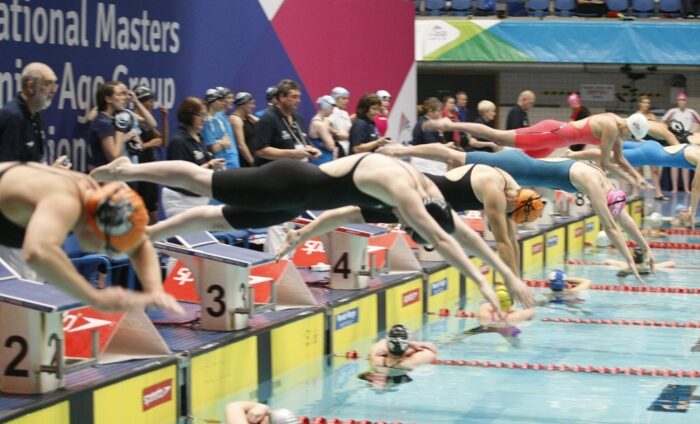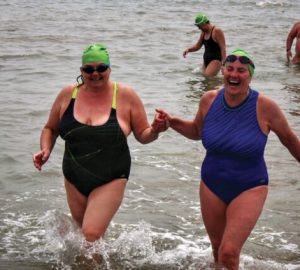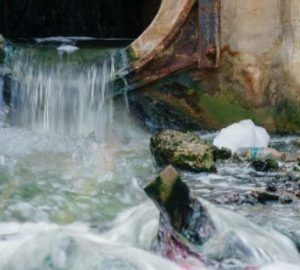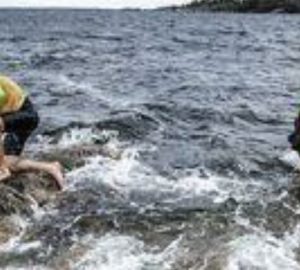
With a little help from my friends…
Image (c) DEPhoto.biz
I spent last weekend up in Sheffield at the ASA National Masters Championships. This is a pool-based gala for swimmers from 18 to 80 plus (technically, those from 18-24 are classified as ‘seniors’, while those 25 and above are ‘masters’). This is one of the premier competitive events for masters swimmers in the UK and consequently attracts a lot of very fast swimmers.
A pool-based competition is very different to open water. Most obviously, the distances (except for the 1500m) are much shorter. The most popular events are 50m and 100m – with the fastest taking little more than 22 seconds for the 50m freestyle dash. Consequently, you tend to spend a lot of time hanging around in a hot, humid and frankly unpleasant environment for very little actual swimming. Sometimes I think the waiting is more tiring than the swimming.
The swim is more of a time trial than a race. In Sheffield, because the pool is so wide you line up with up to nine other swimmers and you all start at the same time. It’s head to head but it’s not really a race in the same tactical way that you get in open water. There’s no drafting and there’s no need to vary the pace to stay with the pack. Quite often the people in your heat will not be in the same age category so there is no way to know how you are getting on until the results are announced. The fastest way to swim is often to ignore everyone else and focus on your own pacing.
Despite this, pool racing is compelling. I’m usually much more nervous before the start of a pool race than an open water event – so much so that I sometimes feel sick and consider withdrawing. However, that all disappears when I hit the water as there is no other time when I can swim so fast. Even my best efforts in training are far slower than my racing speed. I don’t know why this happens but it does, and I’m not the only one.
Nor am I the only open water swimmer who also enjoys the occasional race in the pool. I saw plenty of familiar faces in Sheffield this weekend.
At national level, my only chance of winning an individual medal is when the truly fast swimmers in my age group don’t turn up. This happened in 2011 when I won the 200m freestyle. However, the best I could manage this year was two fourth place finishes in the 400m individual medley (IM) and the 400m freestyle.
As an aside, the 400m IM (i.e. 100m of each stroke in the order butterfly, backstroke, breaststroke and front crawl) was the most soul-destroying race I’ve ever done. I think there’s a very good reason why Michael Phelps dropped it from his schedule for the 2016 Olympics.
However, I didn’t come away from the nationals empty handed. One of my favourite things about masters swimming is the relays. In relays, categories are based on the total age of the team members. This means your contribution to the team depends on not only how fast you are but how many years you bring. I was therefore able to swim with three younger and faster guys in the men’s 800m freestyle relay (160 years plus category) – and we won!
Pool swimming is very different to open water but there’s no reason why you can’t do both. In fact, they are complementary in many ways. Open water swimming helps build your endurance for those longer distances (400m and above) and pool racing helps develop your sprint speed so you can finish strong in open water. I’ve said it before, but if you want to make more out of your swimming then joining a masters swimming club is a great idea, especially if you can do relays with younger and faster people and win medals.








